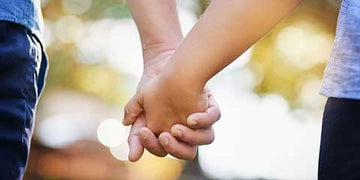Relationship Challenges After Weight Loss Surgery
by Anthony Benjamin on Oct 12, 2022

Relationship Challenges After Weight Loss Surgery
 Weight loss surgery will have profound effects on your life. After surgery, you will be following a new diet, participating in regular exercise, and following a postoperative plan. You may notice a new upbeat mood and improved self-esteem. All these changes can seem overwhelming as you transition to your new lifestyle. This stress of adjustment can cause relationship issues even with those you are closest too.
Weight loss surgery will have profound effects on your life. After surgery, you will be following a new diet, participating in regular exercise, and following a postoperative plan. You may notice a new upbeat mood and improved self-esteem. All these changes can seem overwhelming as you transition to your new lifestyle. This stress of adjustment can cause relationship issues even with those you are closest too.
Your Spouse or Significant Other
Your spouse or significant other has the most at stake for change in your new life. When you lose weight, your partner is “losing” a version of the old you. This loss can provoke emotions like sadness, anger, and fear that can cause relationship issues.
In 2018, JAMA Surgery published a study that found people who had weight loss surgery experienced a change in their relationship status. People got married, separated from their partner, entered a new relationship, or got divorced. Even though divorce happens, researchers found that the likelihood of starting a new relationship or strengthening an existing partnership is greater than the risk of separation or divorce.
Many weight loss programs will have classes for spouses and significant others, so they know what to expect. After surgery, be aware of friction and dysfunctional communication and seek help from a professional therapist or support group to ease the tension. The good news is that if you are experiencing relationship issues with your spouse or significant other most will adjust as you do. Furthermore, improved health allows you an opportunity to discover new activities with your partner that you can enjoy together, which can help strengthen your bond.
Parents, Siblings, Children
 Family support before and after weight loss surgery can enhance your health and well-being. Your immediate family may be supportive of your weight loss surgery, or they may express concerns about risks and complications. While everyone responds differently, mothers tend to be emotional, and fathers can be more withdrawn. Before surgery, children might express fears about losing you. After surgery, trips to the grocery store with kids can be challenging because of pressure to buy food no longer a part of your diet.
Family support before and after weight loss surgery can enhance your health and well-being. Your immediate family may be supportive of your weight loss surgery, or they may express concerns about risks and complications. While everyone responds differently, mothers tend to be emotional, and fathers can be more withdrawn. Before surgery, children might express fears about losing you. After surgery, trips to the grocery store with kids can be challenging because of pressure to buy food no longer a part of your diet.
Parents and siblings can become your biggest supporters and allies in your weight loss journey. If they have fears, invite them to learn more about the type of procedure you decided and explain that you’ve made the decision because your health is important.
Don’t discount your children’s concerns. Use your surgery to promote a healthy family lifestyle that includes nutritious food and regular exercise. Also, assure them that you have an experienced healthcare team who will be caring for you during surgery. Trips to the grocery store with your children after surgery can be easier with a little compromise. Even though your new diet won’t contain sugar or junk food, settling on a small, occasional treat for them will keep tempting food out of the house.
Friends and Acquaintances
 Friendships evolve, and after weight loss surgery, you may find that some friends are happy to celebrate your newfound health while others do not. You may find that some people become distant as you begin to look and feel better, and as your self-esteem improves.
Friendships evolve, and after weight loss surgery, you may find that some friends are happy to celebrate your newfound health while others do not. You may find that some people become distant as you begin to look and feel better, and as your self-esteem improves.
A close friend is there with you through the good times and bad. Maintaining friendships is one of the best ways to stay supported during your weight loss journey. Here are ways you can keep your best friends close:
- Participate in activities together
- Keep in touch with phone calls and schedule times to hang out together
- Allow friendships to grow and change
Besides changes in friendships, you may also find yourself on the receiving end of unwanted attention from acquaintances. It’s common for people to be curious and ask about your weight loss or comment on your new dietary requirements. To handle these interactions, use assertive communication skills to express your feelings and ideas in an open, honest, and direct way while respecting the person asking questions.
You may find it helpful to join an in-person bariatric support group or an online community to form new relationships with people who are either going through or have been through what you are experiencing. They can help answer questions and share strategies that worked for them.
Your Relationship with Food
 Before you decided to have weight loss surgery, your unhealthy relationship with food may have caused binge eating and feelings of guilt and shame. Maybe the food was the enemy because it caused you to gain weight. On the other hand, perhaps food was a friend who made you feel better when you were feeling down.
Before you decided to have weight loss surgery, your unhealthy relationship with food may have caused binge eating and feelings of guilt and shame. Maybe the food was the enemy because it caused you to gain weight. On the other hand, perhaps food was a friend who made you feel better when you were feeling down.
Weight loss surgery won’t cure the fundamental issues that caused your unhealthy relationship with food. Instead, you will learn how to establish a new, healthy partnership with food as you develop other ways to cope with your emotions proactively.
The following are some tips for curbing emotional eating:
- Journal about your feelings
- Find a distraction like reading a book or a hobby
- Participate in regular exercise to lower stress, worry, or fear
- Start a food diary to track what you eat during the day
- Join a support group
- Change your routine, if you notice certain activities are linked to cravings and eating
For more information, read Managing Food Cravings and Your Relationship with Food After Weight Loss Surgery.
Your Hormonal and Emotional Changes
 After weight loss surgery, hormone levels can shift, causing mood changes. Serotonin, a neurotransmitter that affects/regulates mood, digestion, and more, is our natural “feel good” chemical the body naturally produces, and it can be low after weight loss surgery. About 80-90% of the body’s serotonin is produced in the digestive tract. Over time, the high-protein dietary requirements and nutrient absorption issues can result in serotonin deficiencies. If you have a low serotonin level, you may feel depressed, have low energy, feel irritable, and have a reduced sex drive.
After weight loss surgery, hormone levels can shift, causing mood changes. Serotonin, a neurotransmitter that affects/regulates mood, digestion, and more, is our natural “feel good” chemical the body naturally produces, and it can be low after weight loss surgery. About 80-90% of the body’s serotonin is produced in the digestive tract. Over time, the high-protein dietary requirements and nutrient absorption issues can result in serotonin deficiencies. If you have a low serotonin level, you may feel depressed, have low energy, feel irritable, and have a reduced sex drive.
To help boost serotonin levels, try the following:
- Take the recommended supplements and vitamins.
- Eat a healthy diet with key ingredients that the body needs to produce the neurotransmitter. Some foods include bananas, turkey, eggs, fish rich in omega-3 fatty acids.
- Spend ten to 15 minutes outside in the sun each day.
- Participate in regular exercise.
- Get a massage.
In addition to the mood changes caused by low serotonin, you may also find your emotions fluctuating after surgery. Some of the most common causes are:
- Pressure from situations and society expectations. Social gatherings centered around food can become stressful, especially when you are trying to stick to a new diet.
- Isolation and uncertainty as you get used to your new body and lifestyle. Having a reliable support system in place to encourage you is invaluable.
- Living up to unrealistic expectations and self-imposed deadlines can prove detrimental to the strongest of mindsets.
- Getting used to a new lifestyle and your new relationship with food. Many who have weight loss surgery experience grief for the food they no longer eat.
- Relationship changes with your spouse/significant other, family, and friends.
If you experience emotional fluctuations, you can expect them to stabilize over time. If you find that you are on an emotional rollercoaster that doesn’t stop, reach out to your healthcare team for help and advice.
ProCare Health is Here to Help You
At ProCare Health, we are dedicated to providing you with the best quality multivitamin supplements and other products that will help you get the nutrients you need on your journey to a healthier life. Please contact us today with questions, to get a free sample, or to place an order.










